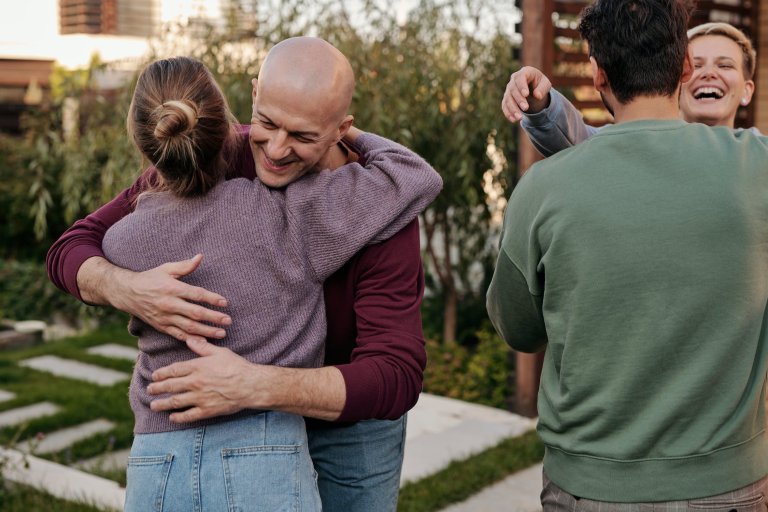Dating is challenging at any age, but the start of a new decade adds a new level of difficulty. If you thought you knew how to date in your twenties, you could find it stressful and overwhelming as you approach thirty. Dating in your 30s is not the same as dating in your 20s. While there are some disadvantages, there are also some benefits.
On the one hand, the playing field is smaller, and you’re certainly carrying more luggage than a decade ago. You may, for example, have had your heartbroken and acquired trust issues, or you may be more dedicated than ever to a career. You could have fewer single matches, which puts more pressure on you to find a spouse.
On the other side, you have a lot more life experience. You’ve probably decided what you want to do with your life, what sort of environment you want to live in, whether or not you want to start a family, and so on. Rather than dating for the sake of dating, you’re more likely to seek a partner who matches your goals and lifestyle choices.
Dating in your 20s is like the diffused light of a disco ball, while dating in your 30s is more like a focused laser beam, according to relationship counselors and scientists. If you know what you’re looking for, you’ll waste less time on relationships that aren’t promising, and you’ll be able to optimize for healthy, aligned interactions with more speed and ease.

Don’t be concerned if you’ve suddenly been single or reached 30 and are observing how dating has changed. We’ve gathered some essential advice from an expert to help you flourish when dating in your 30s.
You could want a partner in his or her mid-twenties who has a good automobile and can afford to take you out to a nice restaurant. Although such characteristics are excellent, when you enter your 30s, you will most likely want more from a relationship. For the purpose of experience, you may be more open to dating someone who is outside of your normal dating interests in your twenties. When you’re in your 30s, though, all of your previous dating experiences pay out in spades. Now is the moment to think about what you want in a relationship if you haven’t before. Make a list of all the people you’ve lately dated. Next to each name, write down the top five things you loved about them and the top five things you didn’t like about them. Make a mental note of any patterns that emerge. In your future relationship, you should look for the characteristics that you appreciated the most.
Many single people in their 30s have gone through heartbreak due to ghosting, adultery, breakups, or even divorce. It’s important to keep in mind that we all have skeletons in our closets and that our past experiences have formed who we are now.
Your past has shaped who you are, but your present and future need not. Instead, focus on the current moment and make plans for the future. All of our former relationships, as well as the previous partners, are allies in our growth and healing.

When you’ve had a string of unsuccessful relationships, your natural reaction is to be on the lookout. Isn’t it true that if you don’t let anyone in, you won’t be hurt? As you probably already know, you won’t find “the one” if you don’t let anybody in.
Allow yourself to unwind when you meet someone who shares your interests. Allow yourself to be open to being vulnerable. It may make you feel uneasy, but the good news is that you’re now in your 30s, and your skin is thicker. If it doesn’t work out, it wasn’t meant to be. The most important thing is that you take action and put yourself out there.
Marriage — or even a long-term relationship — might seem like a pipe dream if you’ve had a few unsuccessful relationships. But it’s critical not to allow your negative thoughts to control you. You may just see your mind spinning its wheels in the mud of your dread and pick a different idea if you notice it spinning its wheels in the mud of your fear. Give someone fresh a chance when you meet them and don’t condemn yourself to a life alone if it doesn’t work out.
In the end, we crave a sense of control in our lives, yet we have very little control.
We can do our hardest to take intentional action at all times, but sometimes the item we’re striving to grasp is kept out of reach because something bigger is already on its way.
It’s all too easy to become preoccupied with what you don’t have. You haven’t met “the one,” you’re not married, and you don’t have any kids. It’s OK to want all of these things, but it’s not a good idea to scrutinize every person you date about their ability to meet your standards.
Fear and scarcity do not appear to be strong internal motivators when it comes to mate selection. Concentrate on having a nice time and learning about the person. You should not be in a hurry to reach the finish line. Some people marry and start a family at the age of 20, while others marry and start a family in their 40s or 50s. So, who knows what awaits us in the future?
Even if the divorce rate in the United States is declining, you may still date divorced persons in their 30s. It’s natural to be envious of or compare yourself to your new partner’s ex-wife. Remembering how that person influenced your partner’s development may help you overcome jealousy of a partner’s previous marriage.
One of the advantages of dating a divorcee is that they are likely to have gained valuable experience from their former marriage, which they may use to their present relationship. We’re all works in progress, and your partner’s former marriage, as well as all of their previous relationships, helped shape them into the person you now get to know.
Is it really that important how old you are? Not in the least. When it comes to dating in your 30s, there is a wider age range to choose from when it comes to finding a potential partner. The most essential elements, at the end of the day, are maturity levels and life vision alignment.
Don’t disregard them because they are too young or too elderly for you. Relationships flourish when two people are in love, supportive of one another, like spending time together, and, most importantly, want the same things out of life and the relationship.
If you’re not interested in someone, don’t talk to them, don’t text them, and don’t hang out with them. Life is far too brief. Wouldn’t you rather get a good night’s sleep than spend time with someone you don’t picture yourself with in the future?
“Dating gets more effective in many respects in your 30s because you know what to optimize for,” Gray adds. Take advantage of this by ending any dead-end relationships as soon as possible.
Any connection requires effective communication. When you’re dating in your 30s, you and your partner should be able to communicate openly and honestly with one another. Have you had your first brawl? It’s best to have an adult conversation about it. If you don’t communicate early on in the relationship, it’ll most likely persist as the relationship progresses.
In order to locate a significant other or accommodate a new spouse, don’t give up basic aspects that make you who you are. Life is a dance of balancing and prioritizing our varied priorities.
Making time to date in your 30s might be difficult, and you’ll probably have to put other things on hold to make it a priority. On the other hand, you may need to put dating on hold in order to achieve other objectives. All that counts is that one listens to their heart’s deepest truth and then prioritizes that truth with continuous action.
Nobody should settle for a spouse who is only sort of interested in them. The connection will not be healthy or long-lasting. People in their 30s, particularly women who desire to start a family, frequently worry that they will not be able to settle down soon enough. For a sense of security, some people may settle for a less-than-ideal spouse.
Rather than obsessing over your ticking clock, you can ground yourself in the idea that it might be more true for you to wait until you find the right person and adopt children with them, rather than racing to have biological children with a partner with whom you don’t feel deeply aligned. You shouldn’t, on the other hand, wait for perfection. Relationships are about coming together in the middle, and you must be prepared to accept someone for who they are, warts and all.